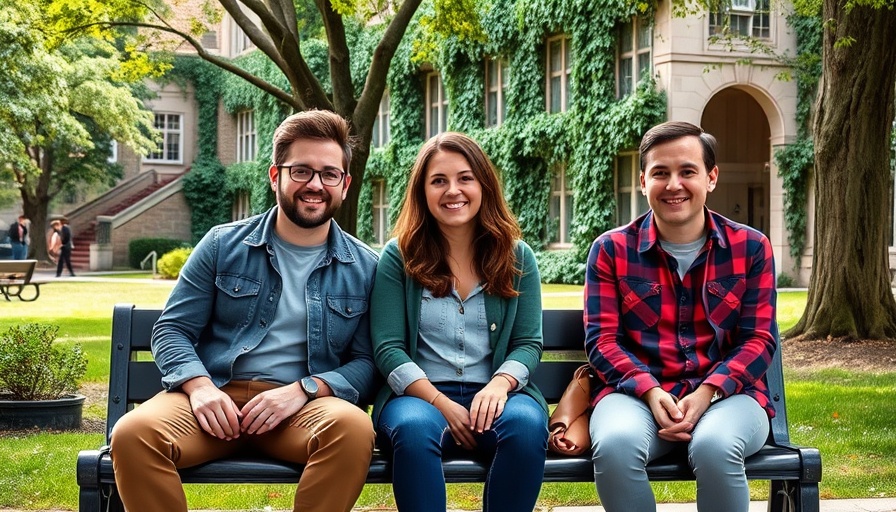
Chinese Students Face Uncertainty Amid Visa Revocation Plans
The Trump administration's recent announcement regarding the revocation of visas for certain Chinese students has sent shockwaves throughout U.S. educational institutions. As over 277,000 Chinese nationals pursue their studies here, many are grappling with sudden insecurity about their futures. The decision, articulated by Secretary of State Marco Rubio, focuses on students in 'critical fields'—a term that remains unsettlingly vague and raises alarms among those in the scientific community and beyond.
The Psychological Impact on Students
Students like Cici Wang from the University of Chicago epitomize the sense of fear and anxiety that has engulfed many Chinese scholars. Wang, who was eager to complete her master’s program and secure a job in the U.S., expressed uncertainty about her plans. "Hopefully, I’ll be fine," she said, but her concerns reflect a broader sentiment among her peers. Uncertainty is particularly exacerbated by ambiguous parameters that the Trump administration has set forth, leaving vital academic and career pathways in jeopardy.
Vague Standards and Their Implications
The State Department's pledge to enhance scrutiny on visa applications connected to the Chinese Communist Party (CCP) and those studying in critical fields lacks transparency. The term 'critical fields' has left many questions unanswered, leading to wild speculation about who might be targeted. This ambiguity stirs anxiety—especially as students in science and technology fields express fears of being directly affected due to perceived threats to national security.
Reflections on a Changing Landscape
As the landscape of U.S.-China relations continues to shift, international students have become unwitting pawns in a larger geopolitical game. The implications of these policy changes stretch beyond personal fears, affecting academic collaborations and future innovations. Students worry that such an environment might deter bright minds from pursuing education in the U.S., potentially leading to a decline in diversity and innovation in academic institutions.
Personal Stories Highlight Larger Issues
The stories of individual students, such as those at the University of California, Los Angeles, reflect a larger trend. Many students are adjusting their career aspirations while contemplating their options back home. A computer science aspirant noted, "The opportunities I was looking forward to may never come to fruition now." This underscores a ripple effect felt throughout the academic community, with students re-evaluating their educational plans and contemplating the possibility of going back to China.
The Broader Context of International Education
The situation is not just a bureaucratic hassle; it’s a heartfelt plea from young scholars wishing to contribute to global knowledge. In historical context, U.S. universities have long prided themselves on their international composition, fostering a rich exchange of ideas that transcends borders. Policies that hinder these interactions not only strain relationships but also rob students of invaluable experiences that inspire future breakthroughs in technology, health, and more.
Looking to the Future: What Can Be Done?
As the challenges mount for Chinese students and others affected by these new policies, educational institutions must advocate for fair treatment and transparent policies. There needs to be a dialogue between universities, governments, and students to address these issues constructively. Students should be actively included in discussions about visa policies, as they are the very individuals these regulations impact.
Conclusion: Navigating New Realities
The announcement regarding visa revocations has given rise to a new reality for many international students, particularly those from China. While fear and uncertainty loom large, staying informed and advocating for fairness in immigration policies is crucial. As the landscape continues to shift, students should seek counsel from their institutions, connect with support networks, and remain resilient in facing ongoing challenges.
For students and scholars alike, understanding these dynamics will prepare them to navigate an increasingly complex educational environment effectively. To ensure their plans do not come to an abrupt halt, these scholars must stay proactive in engaging with their school administrations and peer support groups. The future of U.S.-China academic exchanges depends not only on policy but on the voices of the students they directly affect.
 Add Row
Add Row  Add
Add 




 Add Row
Add Row  Add
Add 

Write A Comment